MILLENNIALS
GUIDE FOR
WORKING PARENTS
Balancing Work, Parenting, Life,
and Everything in Between

Megan Gillespie
Mikki Flaherty
Whitnee Hawthorne
2021 by Megan Gillespie, Mikki Flaherty, and Whitnee Hawthorne
All rights reserved. No part of this publication may be reproduced, stored in a retrieval system, or transmitted in any form or by any means, electronic, mechanical, photocopying, recording, scanning, or otherwise, except as permitted under Section 107 or 108 of the 1976 International Copyright Act, without the prior written permission except in brief quotations embodied in critical articles and reviews.
Published by Winding Pathway Books
.png)
ISBN (print): 978-1-954374-46-1
ISBN (e-book): 978-1-954374-45-4
Book design by: Wendy C. Garfinkle
Cover design by Diego G. Diaz
Photo credit: Diego G. Diaz
For more information or bulk orders, visit: www.leadwithwisdom.com
Printed in the United States of America
Table of Contents
HOW TO USE THIS BOOK
If youve read Millennials Guide to Work, Millennials Guide to Management and Leadership, Millennials Guide to Relationships , or any of the Millennials Guides books , you know how this works . Millennials Guides are not books best read cover to cover. We encourage you to review the table of contents and identify a challenge you are currently having or recently experienced. Turn to those pages to start finding answers!
Each challenge includes a brief description and several strategies you may want to try. Many times, you can see success after trying one option. Youll see some solutions repeated across different challenges because theyre likely to be helpful for many problems. For complex challenges, you may want to attempt several interventions at the same time.
Its important to have patience and give the solutions a little bit of time to work. Some ideas that you try wont solve the problem but will make it a little better thats still success! If you dont feel comfortable trying a solution or if it works partially or not at all, try something else. Some of the solutions are very low risk, such as changing your expectations of the other person. Others can appear more challenging, such as directly discussing a concern with a colleague or asking for a raise from your boss. Start with solutions that feel like lower risk to you and work your way up to more challenging solutions.
This book is divided into sections. Section 1, What is a Working Parent? introduces the concept and describes how working parents create their own version of balance, seek support, and be overall badasses. Section 2, Becoming a Working Parent, deals with transitions of how to prepare yourself and your team at work for your impending parenthood and how to return from parental leave like a superstar. Part 3, Acing the Professional Part of Being a Working Parent addresses the basics of how to start your day in order to make it a success, how to delegate, how to set boundaries, and more. Part 4, Working From Home as a Working Parent, describes challenges many of us have seen about how to work when there is a newborn, toddler, or school age kid with us, plus advanced activities of how to create side hustles or start a business from home. Part 5, Managing the Home Front: the Working Parent at Home, addresses common challenges about scheduling and housework. Part 6, Having a Life While Being a Working Parent, addresses managing your expectations, staying present, and even having a social life (!). Part 7, Managing Anxiety, Depression, and other Mental Health Issues, outlines when to be concerned about your mental health (or your kids) and how to seek assistance. We close with Part 8, Moving Forward as a Working Parent, to wrap things up and help you become the best professional and parent! you can be.
Each of you reading this book is a unique person with talents to share with the world. Our hope is that this book can make it easier for you to do so. Good luck improving your life as a working parent!
FOREWORD
You only have to look at the plethora of TikTok accounts dedicated to making light of Millennials anxiety to see that, as a generation, weve got a lot stacked against us. We started our careers in a financial crisis, laden with student debt. We shouldered expectations from a generation of well-meaning baby boomer parents who felt like we could all be president, if we only worked hard enough. But the chips fell where they wanted to, and the ratio of salary-to-cost to buy a home skyrocketed. Its no wonder were a generation that loves to share: ride sharing (Uber), vacation home sharing (Airbnb), music sharing (Spotify), andas parentswell even rent a bassinet if it promises to get our babies to finally sleep (the Snoo). When push comes to shove, it can feel like we dont have a lot that we can call our own, that is truly ours.
While we put off parenthood later than our own parents, becoming mom or dad was finally our time to have something we could call our own: kids. But we wanted to do it our way. Millennials are statistically more likely to hold onto their hopes, hobbies, and dreams after they become a parent than previous generations. Yes, were mom or dad, but were also wives, husbands, boyfriends, girlfriends, besties, bosses, athletes, wine connoisseurs, CrossFitters. For us, being a parent is only one part of our identity. And please, dont put it all on us moms, either. As students of gender theory and the daughters of second wave feminists, many of us felt there was no way that as women, we wanted to do any more parenting than our partners. Why should we? We all know your gender is not a reflection of how well you can parent.
Despite knowing all of this, we still have the mental load. Somehow, consciously or unconsciously, moms are still doing the lions share of parenting or at least the thinking about parenting. From knowing the school vacation schedule, scheduling the next doctors appointment, worrying about whether your kid is getting along with their friends at school, despite eager and willing dads, moms still feel like theyre doing a lot of that stressful side of parentingthat parenting with a capital P. Much of this comes down to the balancing of work and life. After all, much of this imbalance starts with parental leave: Moms are still taking more time off than dads and until we have both parents taking equal parental leave something that has to be demonstrated from the top in corporate culture and the policy that drives it and we stop calling it maternity vs. paternity leave, moms are always going to be on the front foot, and dads on the back. What we want to get away from is moms teaching dads how to change that diaper, what setting on the white noise machine baby prefers, how baby most likes to be rocked to sleep. The minute moms and dad truly have equal share in parenting, the better it is for everyone. And research shows that dads are happier when theyre equal parents, too.
So yes, there is so much riding on us as a generation, not least in how we parent. Anyone whos ever labelled a Millennial lazy has clearly never actually met a Millennial. The good news is we get so much right when it comes to parenting. Where previous generations subscribed to the helicopter parenting mentality of watching their kids like a hawk as they navigate every bar of the jungle gym, Millennial parents are much more laid back. Where our parents might have valued academic excellence as the apex of success, we just want to raise good kids. Research shows that Millennials prioritize raising good, kind citizens over anything else, and we dont worry so much about grades. We also value independence in our children: We recognize that taking a bench at the playground and letting our kids fend for themselves is beneficial to them (and it gives us a break, too). All this is tied to this idea that we are more than just parents, were humans who are overworked and overextended and hey, if something that makes our lives easier as parents is also good for our kids (cue: the importance of letting them play by themselves), then everyones a winner.
Next page


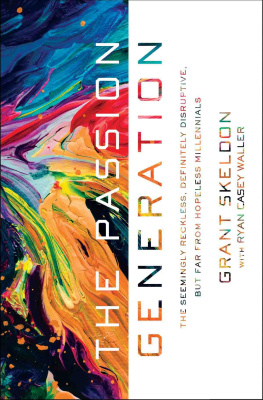
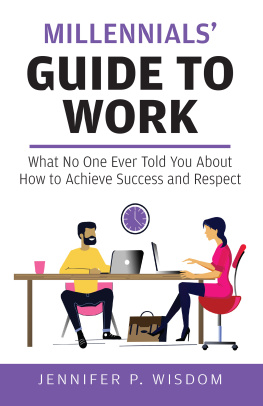
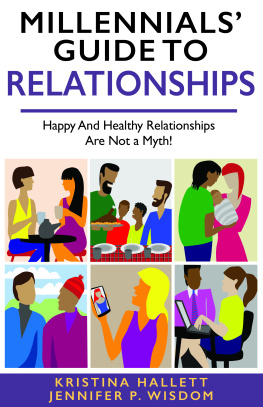

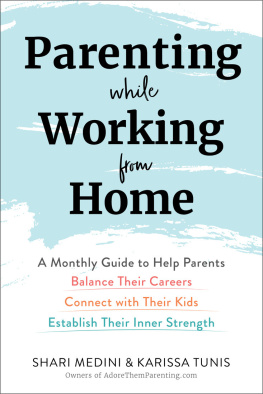
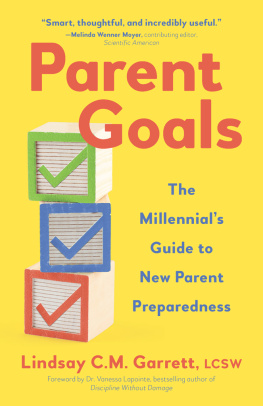

.png)